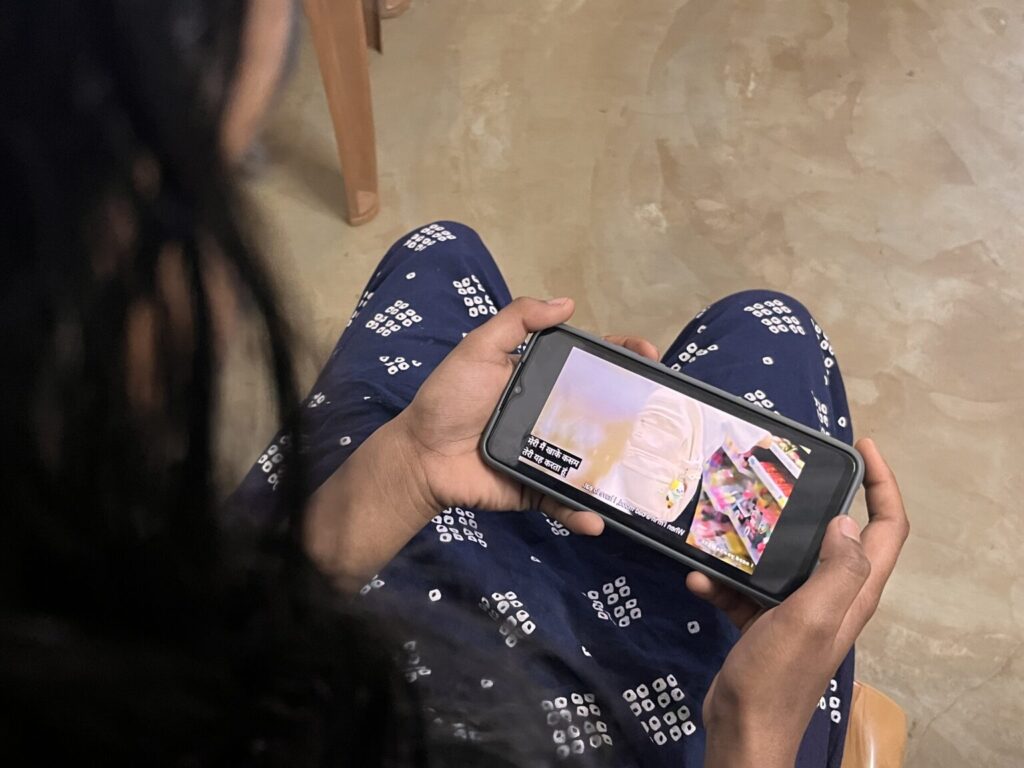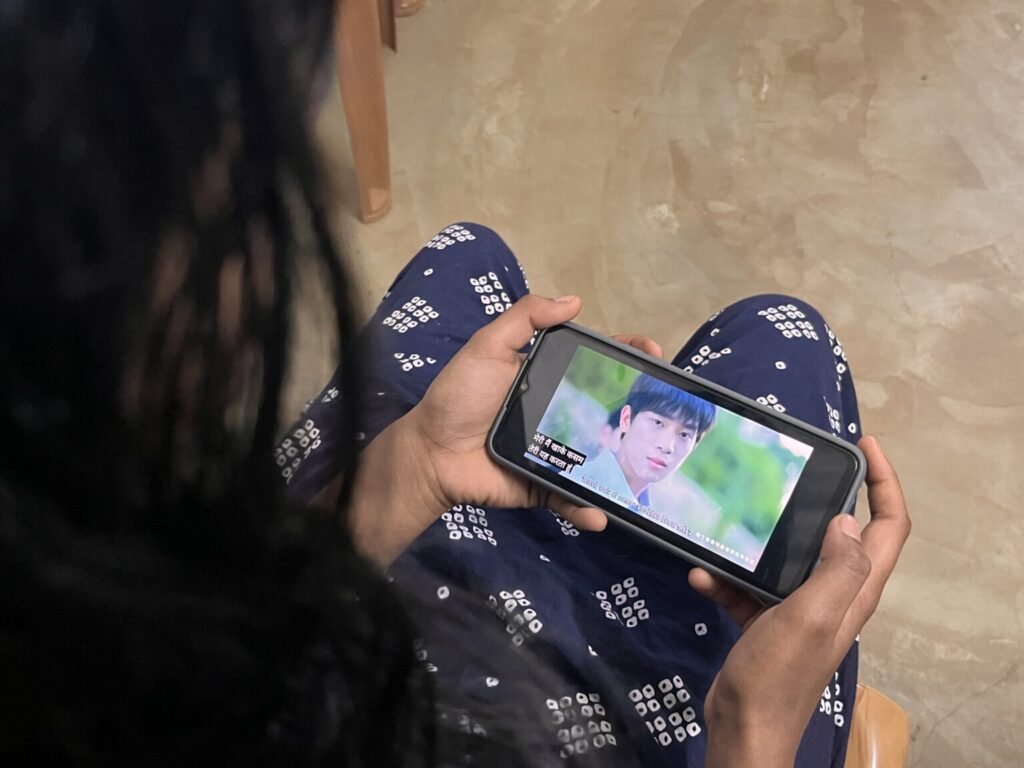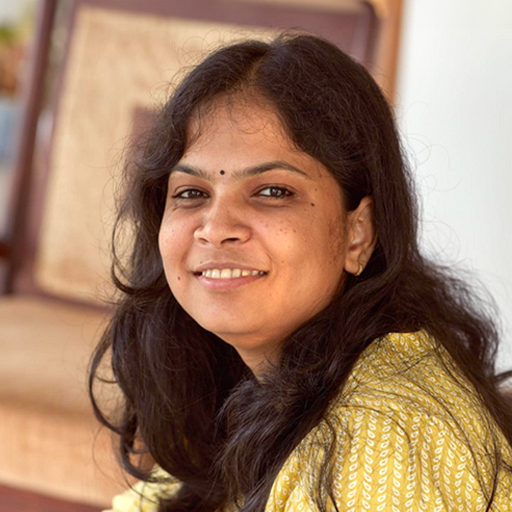- Payment Options
- Terms Conditions
- Malibu 453 blv
- info@charity.com
It all started with a conversation I had with Joby, a 37-year-old woman I met during a baseline survey in Wayanad.
“So, you don’t really like serials but watch them to pass the time, right?” I asked her. Joby mentioned that she didn’t particularly enjoy them, but she doesn’t have many options.
Her 13-year-old daughter, Jesanya, interfered, “Even I don’t like them, but I still watch them with my Amma,” smiling mischievously as if it was a bit of a guilty pleasure.

I was surprised by how mature Jesanya’s response was. “Oh, you don’t like them?” I asked.
“No,” she replied, “but I still watch them because my Amma does. Serials always portray conflicts between mothers-in-law and daughters-in-law, or between husbands and wives. People seem to enjoy it,” Her honesty was refreshing, but also made me think about how young people see the TV shows they watch.
Later, I shared this with my colleague Malavika, who is 8 years younger than me. Malavika, like me, was surprised by how much Jesanya had thought about the content. Malavika remembered watching serials with her family when she was younger and never noticing anything wrong with the content.
It made me think back to my own childhood. I used to watch serials with my mom and sister, too. After finishing my homework, I would sit down to dinner and watch my favorite serial. At the time, I never thought there was anything problematic about them.
But things changed. A few years ago, I was staying in a paying guest accommodation in Trivandrum. One morning, I was having breakfast when the landlady was watching a repeat telecast of a serial. One of the characters said something that hit me hard: “Why do girls need education? It is not a necessity.” That’s when I first realized how harmful the messages in these serials could be. It was a wake-up call.
This feeling was confirmed recently when the Kerala Women’s Commission released a report about the impact of Malayalam TV serials. They had conducted a study involving 400 young people, aged 13 to 19, from different parts of Kerala. The results showed widespread concerns about the negative impact of serials on viewers, especially young people. Many participants said that the shows often had unrealistic themes, promoting unhealthy behaviors like family conflicts, infidelity, and gender stereotypes. The report also pointed out that young viewers, especially children, tend to imitate the negative characters they see on screen, especially female protagonists who are often shown in negative shades.
It’s not just the Women’s Commission that’s concerned. Prem Kumar, the head of the Kerala State Chalachitra Academy, also spoke out about the damage caused by serials.
At a press conference in Kochi, he compared the harmful effects of serials to the toxic pesticide Endosulfan. He warned that serials are not just damaging to individuals, but to society as a whole. Since serials reach a wide family audience, including children, he argued that producers and writers must take responsibility for the content they create. If they don’t, he believes it could lead to the breakdown of society’s values.

What struck me the most during my time in Wayanad was that all the women I spoke to, whether they still watched serials or had stopped, shared the same opinion. They didn’t necessarily enjoy the shows, but many of them continued to watch them out of habit or because they were part of their daily routine. Despite the fact that they knew these serials often showed toxic relationships and unrealistic portrayals of women, they didn’t see much choice but to watch.
Isn’t it time for a change? We need to start demanding better content from the media. TV serials shouldn’t just be about entertainment, they have the power to shape people’s thoughts and behavior. If they continue to promote negative stereotypes and unhealthy ideas, especially about women and relationships, the consequences could be serious, especially for children who are still forming their ideas about the world.


Jesanya’s criticism is a reminder that the younger generation is already starting to see the problems with the content being aired. If young viewers like her can recognize the flaws, it’s time for the creators of these serials to reflect on the kind of message they are sending.
It’s not enough to just talk about the problem, we need to push for better, more responsible content. Content that doesn’t just entertain, but also teaches, uplifts, and inspires. Content that portrays realistic, healthy relationships and emphasizes important values like education, respect, and equality. As viewers, we have the power to demand better. Ultimately, the future of television lies in our hands as viewers. For too long, we’ve allowed harmful stereotypes to be continued in the name of entertainment. Now, more than ever, it’s time to give quality content the platform it deserves.

Sandhya K. P.
Sandhya is the Manager- Media and Film Partnerships, South India at BIRD. She is a former journalist with over a decade of experience, she has a deep passion for reading, writing, and storytelling. Her work has focused on films and social issues, driven by a commitment to creating meaningful change and raising awareness through impactful narratives.
Subscribe to our newsletter

Lorem ipsum dolor sit amet, consectetuer adipiscing elit aenean comm odo ligula eget dolor massa Lorem ipsum dolor sit amet, consectetur adipiscing elit. Aenean egestas magna at porttitor vehicula nullam.





Error: Contact form not found.
Billion Readers © 2024 . All Rights Reserved.
Leave a Reply